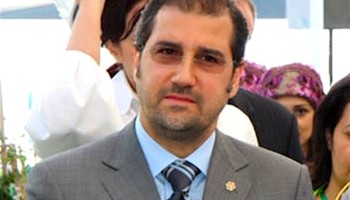Speaking of migrants trying to reach Europe, Orban said in a state of the nation address end of February he believes that “we Hungarians have a future if we remain Hungarian: if we cultivate the Hungarian language, defend our Christian and Hungarian culture, and preserve independence and Hungarian freedom.”
However, between 2013 and 2017, the government that built the first barbed-wire fence along its borders handed out nearly 20,000 permanent residence permits for residency bond investors and their family members.
While Chinese nationals received about 16,000 of the permits, they were also issued to hundreds of Russians and dozens of immigrants from the Middle East and Africa.The Hungarian authorities said that they cannot reveal the identity or any information about the individuals that participated in the program.
But among the recipients were Salmo Bazkka, suspected by Italian authorities of participating in an international money laundering network, and Atiya Khoury, who landed on the US Treasury Department sanction list for assisting Syrian President Bashar al-Assad’s regime in 2016, according to a joint investigation by Organized Crime and Corruption Project (OCCRP) partner Direkt36 and Hungarian news site 444.
After the publication of the article, Hungary’s Immigration and Asylum Office officially confirmed to an MP that Khoury bought his residency bond in 2014 and received a permanent residence permit beginning of 2017. The office said, however, Bazkka received a permanent residence permit already in 2010 and - contrary to what a close relative of his told Direkt36 - he did not buy residency bonds.
Golden Visa to Hungary
The law creating the program was rushed through Parliament without substantial debate in 2012 and quickly became one of the most controversial initiatives of Orban’s Fidesz government.
Under the scheme, those who invested €250,000 (later €300,000) in Hungarian state bonds were granted a Hungarian residency permit, which could also be extended to their families. The permits gave them freedom of movement inside the European Union.
The names Bazkka and Khoury were among those sent to Direkt36 and 444 from an unknown sender more than two months ago, purporting to be foreigners who had received residency permits through Hungary’s residency bond program.
Direkt36 and 444 identified the two Syrians by matching their personal details with public records. A relative of Bazkka confirmed that he bought residency bonds. A source familiar with the administrative process also confirmed that both men received residency permits through the program.
Janos Lazar, head of the Prime Minister’s Office said the authorities carried out a thorough security screening of all applicants. He noted the interior ministry will decide if further investigations are warranted. Hungary’s Immigration and Asylum Office told an MP that it does not plan to carry out any further investigations or to revoke the residence permits of the two Syrian men.
Bazkka, 52, was detained in 2017 when the Hungarian Counter-Terrorism Center raided five locations seeking suspected members of an international criminal network “dealing with laundering and distributing money made from drug and weapon trade, and illegal migration,” the police said.
“Yes, he purchased it, we are not migrants [in the usual sense],” said a man in Hungarian at the site of the Bazkka family’s company in Budapest. The man said that he is related to Bazkka.
Khoury, a businessman, was named on a US sanctions list in the summer of 2016 for “fueling the Assad regime’s repressive actions and dangerous weapons proliferation.”
According to the sanction documents, Khoury owns and operates Moneta Transfer & Exchange, a financial services network that deals with currency exchange and cash transfers and has played an important role in maintaining Assad’s regime. Khoury is accused of moving cash between Syria, Lebanon and Russia.





